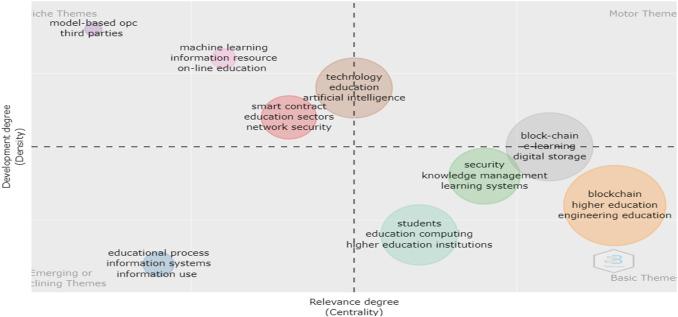10 groundbreaking Case studies: how Blockchain Is Transforming Higher Education
In today’s rapidly evolving digital landscape, blockchain technology is emerging as a disruptive force not just in finance, but across multiple sectors—including higher education. From enhancing academic credentialing to improving data security and enabling seamless collaboration, blockchain’s impact on universities and colleges is profound. In this article, we delve into ten groundbreaking case studies that showcase how blockchain is transforming higher education around the globe. Whether you are an educator, institution leader, or student, understanding these real-world applications will help you navigate the future of learning.
Why Blockchain in Higher Education?
Before we dive into the case studies, let’s briefly cover why blockchain technology is gaining traction in academia:
- Immutability: Data, once entered, cannot be altered or deleted, ensuring authenticity of academic records and certificates.
- Transparency & accessibility: Verified educational details are easily shareable and portable.
- Cost-Efficiency: Reduces administrative overhead and fraud.
- Decentralization: No single authority controls access to student records, promoting openness.
- Security: Advanced cryptography safeguards sensitive student data.
10 Case Studies Highlighting Blockchain’s Impact on Higher Education
1.The MIT Digital Diploma Project (United States)
The Massachusetts Institute of Technology (MIT) pioneered the use of blockchain for academic credentialing with their Digital Diploma initiative. By issuing tamper-proof, digital diplomas via the blockchain, MIT made it simple for graduates to share verifiable credentials with employers worldwide. This dramatically reduced fraud and administrative verification time.
2. University of Nicosia (Cyprus): Blockchain for Course Certification
The University of Nicosia, a global leader in blockchain education, became the first university to accept Bitcoin for tuition and issue blockchain-based course certificates. Their partnership with Block.co enables students to store and instantly verify degrees and qualifications, improving trust between employers and educational bodies.
3. Sony Global Education & IBM: Blockchain for Learning Histories (Japan)
In collaboration with IBM, sony Global Education launched a blockchain platform to securely consolidate learning histories and transcripts from different organizations. This fosters smoother student transfers and better assessment of learning outcomes, benefiting both learners and educational administration.
4. open University & Blockchain-Led Diplomas (United Kingdom)
The UK’s Open University developed the Open Blockchain initiative, investigating smart contracts and digital certificates to facilitate obvious, secure, and cost-effective issuance of degrees. Their research has paved the way for further blockhain adoption across UK higher education.
5. Holberton School: Decentralized Diplomas (united States)
San Francisco’s Holberton School, focused on software engineering, issues blockchain-based diplomas that are easily shareable and impossible to forge. This decentralized approach has gained recognition from tech employers, boosting graduates’ employability.
6. ECPI University: Blockchain for credit Transfer and Attendance (United States)
ECPI University leverages blockchain to maintain and track student attendance and credit transfers. Their platform removes bureaucratic friction, eases student mobility, and improves data integrity across all campuses.
7. Malaysia’s Ministry of Education: e-Scroll Project
Malaysia’s Ministry implemented the e-Scroll project: a nationwide blockchain solution to combat fake degrees. Graduates’ certificates are cryptographically registered on the blockchain,enabling employers and authorities to instantly validate credentials online.
8. Learning Machine & Malta’s Government: National Blockchain Credentials
The Maltese government and Learning Machine have launched a country-wide blockchain system for issuing verifiable academic records.Their pilot with secondary and tertiary institutions ensures that both students and employers access authentic,tamper-proof qualifications from anywhere in the world.
9. Edinburgh Napier University: Blockchain for Research & Data Management
Edinburgh Napier University explores blockchain in academic research data management, improving access control, traceability, and the integrity of intellectual property. Their initiatives ensure research data remains secure yet accessible for future innovation.
10. university of Melbourne: Blockchain Academic Credentials (Australia)
The University of Melbourne implemented blockchain technology to issue digital academic credentials. Through the SSI (Self-Sovereign Identity) approach, students maintain full control over the distribution of their verified records, leading to enhanced privacy and easier credential sharing.
Benefits of Blockchain Adoption in Higher Education
- Reduces Credential Fraud: Verified blockchain diplomas are nearly impossible to counterfeit.
- Streamlines Verification: Immediate, 24/7 verification saves time for institutions and employers.
- Enhances Student Mobility: Students can seamlessly transfer academic credits between institutions globally.
- Boosts Administrative Efficiency: Automates processes, cutting down costs and paperwork.
- Empowers Learners: Students gain control over their academic journey and personal data.
Practical Tips for Universities Embracing Blockchain Technology
- Start with Pilots: Launch blockchain-based initiatives for select programs to test scalability and gather feedback.
- Collaborate with Tech Partners: Team up with established blockchain providers or startups specializing in education.
- Focus on Interoperability: Ensure your blockchain solution is compatible with international standards for broader adoption.
- Engage Stakeholders: Involve students, employers, and faculty in the design and rollout process.
- Prioritize Privacy: Use privacy-by-design principles, putting students in control of data access.
First-Hand Experiences: Voices from the Blockchain Campus
“Since receiving my MIT blockchain diploma, job applications have become far smoother. Interviewers no longer need lengthy credential checks—everything is instantly available with a click.”
– Sarah L., MIT Graduate
“Blockchain-powered transcripts help our admissions team process international applications much faster and with greater confidence.”
– University Admissions Officer, Australia
Conclusion: The Future of Blockchain in Higher Education
As these ten case studies clearly demonstrate, the future of higher education and blockchain technology is closely intertwined. Universities and colleges worldwide are already experiencing tangible benefits: secure digital credentials, reduced fraud, enhanced mobility, and notable administrative cost savings. As blockchain platforms mature and standards become more widespread, educational institutions that embrace this innovation will be well-positioned to lead in the evolving global academic ecosystem.
Are you ready to join the blockchain revolution in higher education? Stay tuned as new use cases and innovative partnerships continue to reshape the educational landscape.

